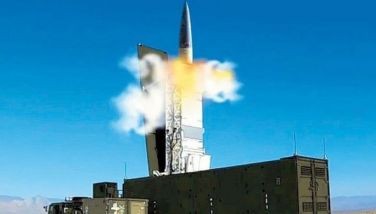NBI report on Taiwan incident

The current dispute between the Philippines and Taiwan over the shooting death of a Taiwanese fisherman by Philippine Coast Guard personnel is now entering its third month. The incident took place during an interdiction effort by the Coast Guard on a Taiwanese fishing vessel in waters off the northern Philippines that falls in overlapping exclusive economic zones (EEZ) of Taiwan and the Philippines. To recap, Taiwan made four demands on the Philippines: an apology, investigation and prosecution of the persons involved; talks to prevent similar incidents from occurring; and compensation to the family of the victim. It also imposed sanctions whose lifting was conditioned on “satisfactory†compliance with these demands. The sanctions include a freeze on the hiring of Filipino workers, the issuance of a red travel advisory, the suspension of official bilateral cooperation, and revocation of visa-free privilege to Philippine passport holders with US, Schengen and Japanese visas. To date, the Philippines has proffered an apology which was rejected, completed an investigation by the NBI during which the Taiwanese were invited to undertake their own parallel investigation, and conducted preliminary talks on fisheries cooperation. Still pending is the release of the results of the NBI investigation and the filing of charges which are now with the Office of the President.
Aside from Taiwan and Chinese media, the view of most of the world is that Taiwan had over reacted and did so in a high-handed manner. Foreign diplomats, who I have spoken to, agree with this perception. This is what prompted Taiwan to conduct a global media campaign, but primarily in Washington, DC, no doubt in reaction to the neutral stance that the US administration has taken in this dispute. So in a sense, the Philippines has acted with sincerity in complying with these demands, and one can say, is on a moral high ground than Taiwan, which some see as the bully here.
That said, the fact remains that somebody died and as a member of the family of nations, we are obligated to investigate and reveal the true circumstances that led to the death and if so warranted, then to prosecute those found guilty of a criminal act. We risk eroding this moral advantage the longer the results of the investigation are not released. Secretary Leila de Lima had announced on June 13 that the report had been submitted to the Office of the President and that criminal and administrative charges have been recommended. It has been over a month now and there is no indication when an announcement is going to be made. The delay has aroused speculation which the presidential spokesperson did little to dispel when he said that the Philippines would release the report at a date of its own choosing and not as a result of pressure from a foreign government.
This raises the question of why should we not release the report promptly? Is it not in our own interest to do so? Or at least to the thousands of OFWs bound for Taiwan? More important, why would the NBI report require presidential approval? Is it not the responsibility of the Department of Justice to take to the next step, which is to decide whether there are grounds for prosecuting the case? Putting it in the hands of the President to decide is certain to give it political color and will undermine the credibility of the DOJ and the NBI. The Coast Guard has apparently provided its men with capable lawyers to defend them and why should they worry if they are confident of their version of the incident. So really, what is there for the President to decide on? Let us hope this is just a case of presidential pique at the heavy-handed Taiwanese actuations in the course of this dispute. That I can understand, although hopefully not for long. Any other reason for the delay would test the credibility of our country’s justice system. We would lose the moral high ground completely and cede it back to Taiwan. International opinion would go against us.
Contrast this with the handling of the sinking of a Taiwanese pleasure fishing vessel after it collided with a Japanese Coast Guard patrol boat in disputed waters off the Senkakku Islands claimed by both Japan and Taiwan (and China of course). That incident took place on June 11, 2008. The Taiwanese also recalled their envoy, demanded an apology, the conduct of an investigation and the payment of compensation. Even though the circumstances to the sinking are disputed – although evidence would show that the Taiwanese fishing boat rammed into the Japanese ship in an evasive maneuver – 10 days later, the Japanese Coast Guard issued an apology to the victims and agreed to pay compensation. These actions quickly defused any more heated rhetoric from escalating. Although our side, through MECO, quickly reacted to calm the rising tension, their efforts were undermined by bone-headed statements from government and the Coast Guard spokesperson. The Coast Guard in particular justified their action as in self-defense (which is disputed by media reports that they fired more than 100 shots in the course of over an hour long chase) and added insult to injury by saying that the victim’s family deserves no apology. In Chinese custom, apologizing to the victim’s family is the norm and not an admission of criminal liability.
Meantime, our Department of Labor and Employment (DOLE), seems to be minimizing the consequences to Filipinos who make their living in Taiwan promising them that they can be readily shifted to work opportunities here or abroad. Besides, the treatment of Filipino workers in Taiwan are said to be one of the most favorable among various destinations. The minimum wage is the same as Taiwanese workers and they are fully covered with social security, health insurance and labor insurance benefits for their dependents. We seldom hear of exploitation, sexual abuse and deprivation suffered by our workers there. Treating them as mere statistics and not as individuals on whose employment many others depend on would seem to be cavalier.
I hope the people advising the President on this would realize the ramifications of the delay and see to it that this be done so immediately – not for any other reason than to preserve our credibility in the eyes of the world and to ease the burden on those directly affected including thousands of OFWs. We are running out of excuses. The SONA is already stretching it.
- Latest
- Trending




























